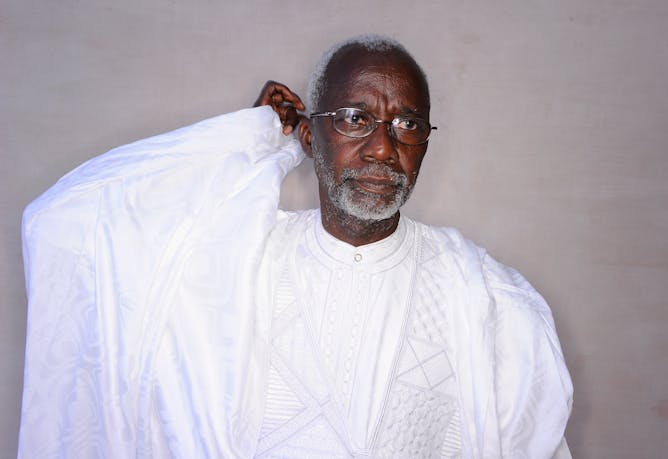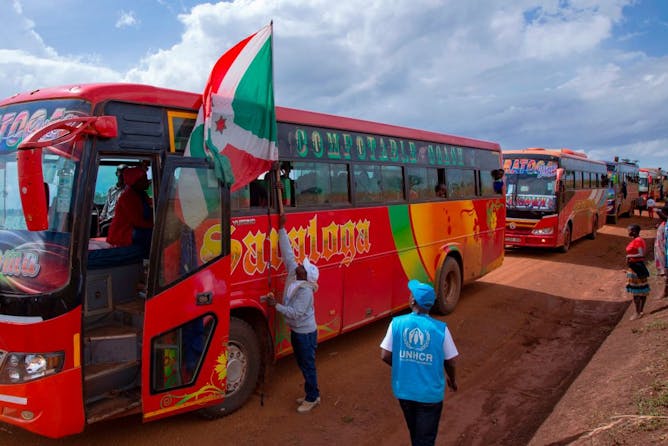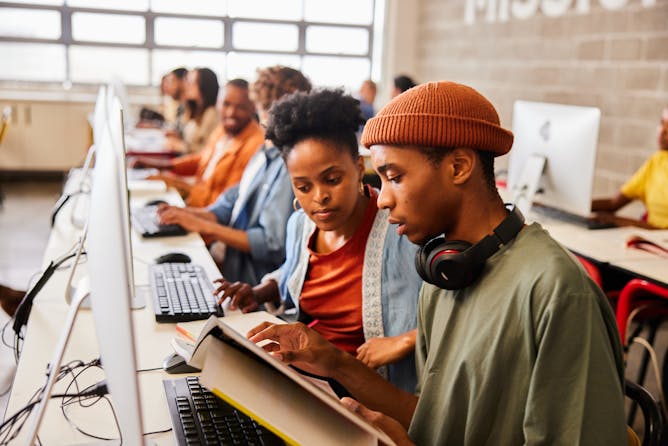|
This week the red carpet will be rolled out at the annual Cannes Film Festival. It’s one of the globe’s most prestigious and important events for showcasing excellence in cinema - and no award handed out at Cannes is as coveted as the Carrosse d'Or. Since 2002 it’s been awarded to great film-makers who have boldly pioneered new cinema through exceptional direction - with Senegalese film-maker Ousmane Sembène receiving it in 2005. This year it is being bestowed on an African director for only the second time - the Malian great Souleymane Cissé. African film scholar and critic David Murphy explains how Cissé’s films fit into the grand history of African cinema and why he so richly deserves
the honour.
Nearly 70% of refugee camps in Africa are situated close to the border of the country from which refugees fled. One practical advantage is that refugees can move back and forth across borders. But, as Kara Ross Camarena sets out, that’s not why host countries prefer to locate camps there. Her research in Kenya and Tanzania found that the real aim was to influence the war by making it easy for rebels to recruit among refugees. As further proof of this, these
same countries made starkly different choices in instances when they supported the regime in power in the neighbouring country.
|

David Murphy, University of Strathclyde
The director will receive the Carrosse d'Or, awarded to cinema pioneers, at the Cannes Film Festival on 17 May.
|

Kara Ross Camarena, Loyola University Chicago
Tanzania’s refugee policy in the 1990s is a good example of how geopolitics affects ordinary refugees.
|

Pedro Tabensky, Rhodes University
Why is there such a great discrepancy between what scholars of education have been telling us and what happens in the classroom?
|

Ramos Asafo-Adjei, Takoradi Technical University
Social media use has adversely affected students’ English language learning in Ghanaian schools.
|

Nicky Falkof, University of the Witwatersrand
Fear has important consequences for how people vote, what they spend their money on, who they consider to be part of their communities, and who they treat as outsiders.
|
From our international editions (list)
|
-
Renee Carey, Curtin University; Jonine Jancey, Curtin University
Social media platforms have policies prohibiting the promotion of tobacco products, including vaping. But these policies are routinely violated, with little or no consequences.
-
Edel Hyland, Queen's University Belfast
Psilocybin, the active ingredient in magic mushrooms, is one example of a fungus which can alter the human mind.
-
Yvonne Su, York University, Canada
The pandemic caused untold suffering around the world. It also created a new type of community solidarity rarely seen before. As we enter the post-pandemic era we must maintain that solidarity.
-
Yue Qian, University of British Columbia; Yang Hu, Lancaster University
Globally, mothers’ educational status has a greater influence over the level of education their children attain today than was the case for people born mid-century.
|
|